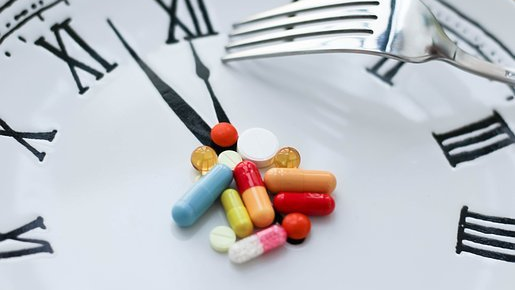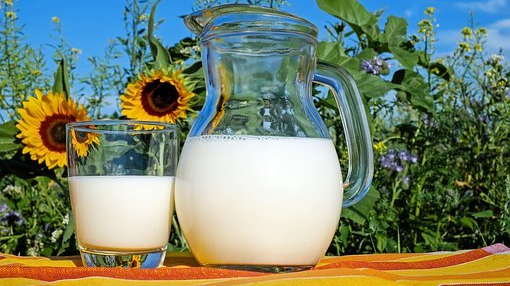Pregnancy diarrhea
SYMPTOMS
What is diarrhea during pregnancy?
Diarrhea during pregnancy refers to a noticeable increase in bowel movements (>3 times/day) compared to the usual frequency, with loose, watery stools. It is also known as "having loose bowels" during pregnancy and is a common digestive symptom during this period.
What are the symptoms of diarrhea during pregnancy?
Symptoms of diarrhea during pregnancy mainly include increased bowel movements, unformed stools, tenesmus (a strong urge to defecate with little or no stool passed), and fatigue. Some patients may also experience nausea, vomiting, abdominal pain, or fever.
What other conditions can diarrhea during pregnancy lead to?
Complications of diarrhea during pregnancy include fluid and electrolyte imbalances, acidosis, hypoglycemia, fainting, and oliguria (reduced urine output).
Does diarrhea during pregnancy affect the fetus?
Severe diarrhea during pregnancy may indirectly trigger uterine contractions due to excessive and frequent intestinal motility, leading to adverse outcomes such as miscarriage or preterm birth. In cases of diarrhea caused by Listeria infection, it may even result in intrauterine fetal death.
Can diarrhea during pregnancy cause a miscarriage?
Severe diarrhea may induce uterine contractions, potentially leading to miscarriage.
Is weight loss after diarrhea during pregnancy normal?
Diarrhea during pregnancy causes rapid fluid loss, leading to temporary weight reduction. This is a normal response, and weight typically returns to pre-diarrhea levels once electrolyte imbalances are corrected and the condition improves or resolves.
TREATMENT
How to relieve diarrhea during pregnancy?
During pregnancy diarrhea, avoid raw, cold, spicy, greasy, or irritating foods. Eating toasted bread or crackers can help with astringency and reduce diarrhea. Pregnant women with lactose intolerance should reduce dairy intake.
What medications can be taken for diarrhea during pregnancy?
Unless treating a specific infection or condition, the focus should be on preventing dehydration. Other medications, such as probiotics or gastrointestinal mucosal protectants (e.g., bifidobacteria), are optional.
Can pregnant women take smectite for diarrhea?
Smectite is safe for both pregnant women and fetuses and can be taken to treat diarrhea.
Can pregnant women drink salt water for diarrhea?
Diarrhea often leads to the loss of electrolytes like sodium and potassium. While warm salt water can replenish sodium and fluids, its concentration is hard to control. Oral rehydration solutions from pharmacies are more suitable.
What medications should be avoided for diarrhea during pregnancy?
Medications should prioritize maternal and fetal safety. Avoid drugs with known harm, particularly those outside FDA categories A and B.
Can pregnancy diarrhea resolve on its own?
Mild cases caused by dietary issues (e.g., spicy foods, lactose intolerance, or vitamins) often resolve after adjusting diet or stopping supplements.
Does pregnancy diarrhea require hospitalization?
Hospitalization depends on severity. Simple functional diarrhea without complications (e.g., electrolyte imbalance, bloody stool, fever) usually doesn’t require it. Severe or organic diarrhea may need inpatient care.
How long does pregnancy diarrhea last? Can it fully recover?
Mild functional diarrhea typically resolves within days after dietary adjustments, with full recovery. Prolonged or complicated cases take longer. Organic diarrhea (e.g., inflammatory bowel disease) may improve with treatment but rarely fully resolves.
What dietary precautions should be taken for pregnancy diarrhea?
Stick to cooked foods and avoid high-fiber, sugary, or fatty items. Avoid caffeine, carbonated drinks, dried fruits, and chocolate, as they may worsen diarrhea.
Can pregnant women eat eggs during diarrhea?
Yes, but avoid fried or heavily seasoned eggs. Opt for boiled or steamed eggs.
What lifestyle precautions help with pregnancy diarrhea?
Wash hands frequently and keep the anal area clean and dry to prevent dermatitis or hemorrhoids from frequent diarrhea.
How to prevent and manage pregnancy diarrhea?
- Eat a balanced diet; avoid raw, cold, greasy, or overly sweet foods.
- Lactose-intolerant women should limit dairy.
- Probiotic yogurt may help stabilize gut flora.
- Manage stress to reduce irritable bowel syndrome.
What to do about hemorrhoids after pregnancy diarrhea?
Use topical anti-inflammatory, anti-itch, or anesthetic treatments. Severe cases may require safe surgical options like hemorrhoidectomy.
How to relieve stomach pain after pregnancy diarrhea?
Take bifidobacteria or aluminum magnesium carbonate to protect the stomach lining. Seek medical help if pain persists or worsens.
How to reduce bloating after pregnancy diarrhea?
Avoid gas-producing foods (e.g., soy milk, dairy). Eat fiber-rich vegetables (e.g., celery, spinach) and take bifidobacteria to improve gut function.
DIAGNOSIS
When should pregnant women seek medical attention for diarrhea?
Seek immediate medical attention if diarrhea during pregnancy is accompanied by any of the following symptoms or conditions:
Increasingly severe abdominal pain, mucus or blood in stool, headache, frequent vomiting leading to inability to eat, rapid heartbeat, abnormal fetal movements (suddenly faster, slower, or absent), fever (temperature above 37.5°C), decreased urine output, or rapid heartbeat.
POTENTIAL DISEASES
What are the possible causes of diarrhea during pregnancy?
The causes of diarrhea during pregnancy can be divided into functional and non-functional (organic) reasons, which are explained separately below.
(I) Functional causes
1. Changes in hormone levels during pregnancy
In early pregnancy, the levels of estrogen, progesterone, and human chorionic gonadotropin (hCG) in a woman's body rise rapidly. These hormonal changes can lead to a series of early pregnancy symptoms, including diarrhea, though the symptoms are usually mild.
2. Vitamin intake during pregnancy
Most women take vitamin supplements during the preconception period and early pregnancy. Some may experience diarrhea after taking vitamins, but the symptoms are generally mild.

3. Changes in dietary habits
Some pregnant women experience a significant increase in appetite. They may suddenly crave spicy or sour foods or eat larger portions than before pregnancy. This can initially cause gastrointestinal discomfort and lead to diarrhea.
4. Lactose intolerance during pregnancy
Some pregnant women may experience abdominal pain, bloating, and diarrhea after consuming milk or dairy products, a condition known as lactose intolerance. This is caused by lactose malabsorption due to low levels of lactase in the small intestine and is more common in Asian populations.

5. Use of laxatives during pregnancy
Some pregnant women may use laxatives such as lactulose or glycerin enemas to relieve constipation. Due to excessive dosage or individual differences, some may experience mild and temporary diarrhea as an overcorrection, but this is usually not a cause for concern.
6. Irritable bowel syndrome (IBS)
IBS is a chronic functional gastrointestinal disorder characterized by chronic abdominal pain and changes in bowel habits (alternating diarrhea and constipation) without organic abnormalities. It is often related to weakened gastrointestinal adaptability and psychological factors in pregnant women.
(II) Non-functional causes
1. Pathogen infection due to contaminated food
During pregnancy, immunity may decline to varying degrees. Consuming unclean or undercooked food can lead to bacterial or toxin infections in the gastrointestinal tract, resulting in diarrhea.
2. Inflammatory bowel disease (IBD)
IBD refers to a group of non-specific chronic inflammatory bowel diseases, primarily ulcerative colitis and Crohn's disease. Symptoms include abdominal pain, diarrhea, bloody stools, and other clinical manifestations. These conditions tend to recur, and during pregnancy, the underlying disease may worsen, leading to increased diarrhea.